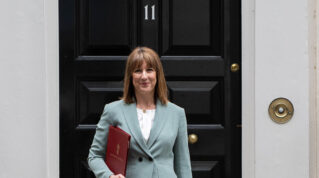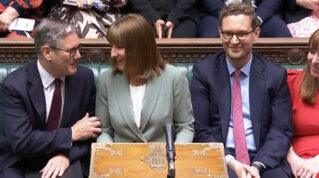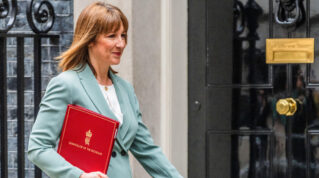Schools were handed a surprise multi-billion pound cash boost in today’s Autumn statement, with chancellor Jeremy Hunt saying it was a “thank you” for the sector’s “brilliant work”.
But most the cash will come from the government cutting its oversees aid spending, a think tank said. And there are question marks over whether schools will continue to get energy support after March.
Schools will get an extra £2.3 billion in each of the near two years – a yearly rise of 4 per cent.
The sector was one of the few to benefit in a bleak statement that came amid official forecasts of the biggest drop in living standards since records began.
The Institute for Fiscal Studies confirmed the additional funding will at least restore real-terms per-pupil funding to 2010 levels.
The Treasury said the rise equates to an “average cash increase for every pupil of more than £1,000 by 2024-25, compared to 2021-22”.
The 2021 budget forecast that core school funding would rise to £56.8 billion in 2024-25. It will now rise to £58.8 billion.
The £300 million difference is already-committed extra cash that no longer needs to cover the health and social care levy.
Will it solve schools’ funding woes?
Sam Freedman, a former government adviser, said: “Until we know what’s happening with energy prices, inflation and pay next year – we can’t be clear exactly how generous this is.”
Increased pay rises for this year cost the sector £1.3 billion. The additional cash will also have to cover any pay rises awarded for next year, which have yet to be decided.
Schools are also hit by other rising costs, and Hunt said inflation is forecast at over 7 per cent next year.
Paul Whiteman, general secretary of leaders’ union NAHT, said additional cash was “welcome” but “this doesn’t mean schools are completely off the hook”.
Geoff Barton, who leads the Association of School and College Leaders (ASCL), said it was not clear where this “leaves special educational needs and post-16 provision which are both facing extraordinarily difficult financial circumstances”.
The Institute for Fiscal Studies said spending per pupil in 2024-25 will be about 3 per cent above 2010 levels using an “economy-wide inflation captured by the GDP deflator”.
However if this is adjusted for an estimated index of school-specific costs, spending per pupil will “return almost exactly back to 2010 levels”.
“This means that school funding is now forecast to exceed growth in school costs, such as growth in teacher and support staff pay levels,” an IFS spokesperson said.
Academies minister Baroness Barran said it was “great news for schools on top of the existing £4bn increase for this year and meets the calls for additional funding from the sector”.
“I know trusts and schools have been really concerned about rising costs. I hope this helps take the pressure off.”
The IFS said the funding was in large part from “recycling £5 billion previously earmarked for increasing overseas aid spending to 0.7% of national income”. Instead, it will remain at 0.5 per cent.
Between 2010 and 2020, school spending per pupil in England fell by about 9 per cent after inflation. This is the largest decline in school spending per pupil in at least 40 years.
Boost is ‘thank you to school staff’
Hunt said his message to school staff was “thank you for your brilliant work – we need it to continue”.
The chancellor said “being pro education is being pro-growth”, adding education is “not just economic but a moral vision”.
He “wants to ensure” that “even in an economic crisis school standards continue to accelerate”, adding “world-class education” is at the “heart” of its vision for the country.
Leora Cruddas, chief executive of the Confederation of School Trusts, said she was “delighted”.
“Schools and school trusts have the talent and expertise to find innovative and cost-effective ways to keep improving education and supporting their local communities, and the announcement today will help them to plan ahead.”
Capital funding rises from £6.3 billion this year to £7 billion next year, and then down to £6.1 billion in 2024-25.
Questions over energy support next year
Schools and other non-domestic energy users, including businesses, are currently able to receive help through the government’s Energy Bill Relief Scheme.
The scheme reduces rates to £211 per megawatt hour for electricity and £75 for gas until March 31 next year.
But the government is reviewing what support they can offer beyond this date, saying it is “not sustainable” to continue supporting large numbers of businesses.
However public sector organisations will “not be eligible for support through the review”, meaning it is currently unclear if they will receive any support from April next year.
If there is no support forthcoming, then this would leave schools facing a big hit in extra costs (although government seems hopeful that prices will drop next year).
















Why does school get funding when everything the parents pay for the parents pay for the trips the parents pay for the uniform the parents pay for all the events at school so the government rather pay the school 2.3 billion only for them to provide more books disgrace